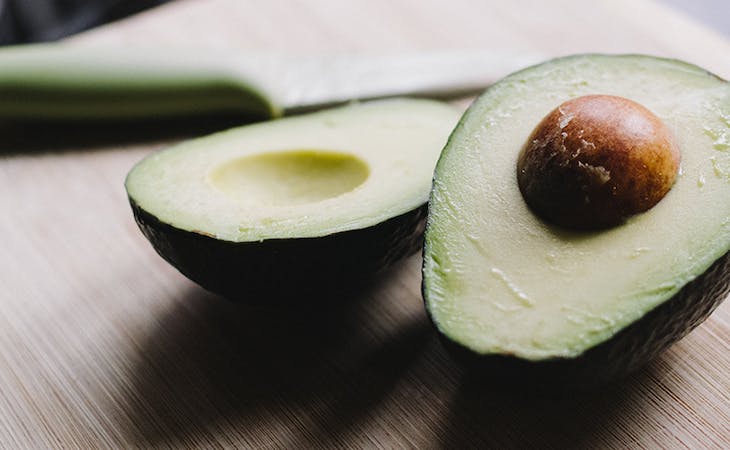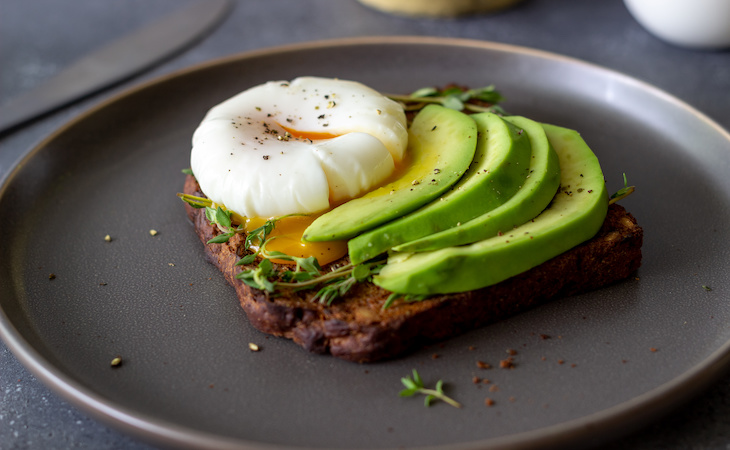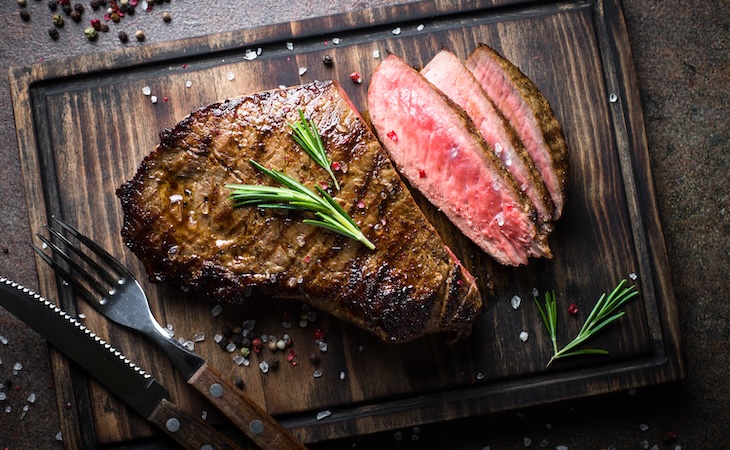January is the time of year for fresh starts. If you’re like many resolution makers, your goals for 2019 include things like beefing up your bank account and hitting the gym more often. But if your pledges include slimming down and getting more rest, you may or may not be able to accomplish both—especially if you decide to go on the ketogenic diet, one of the trendiest eating plans making the rounds.
Though it has been used for treating various ailments for years, the ketogenic diet has recently ballooned in popularity as a means for satisfying hunger while dropping pounds. But while many people swear by this diet for weight loss, it turns out it may impact how well you sleep.
What is the ketogenic diet?
The ketogenic diet is high in fat, moderate in protein, and low in carbohydrates, explains Seattle-based dietitian Ginger Hultin, RD, spokesperson for the Academy of Nutrition and Dietetics. The standard ketogenic diet contains 75% fat, 20% protein, and 5% carbs. Foods that you can expect to eat a lot of on the ketogenic diet include fish, avocados, eggs, coconut oil, Greek yogurt, olive oil, and nuts.
The ketogenic diet was first developed in the 1920s as a treatment for epilepsy in children, but recent research shows that it has numerous health benefits for adults. It can help you do everything from lose fat to preserve muscle to improve cholesterol to lower blood sugar.
Experts aren’t entirely sure why the ketogenic diet has the benefits it has, but most theorize that it’s got something to do with what happens to your body when you stop noshing on carbs. When you run out of carbs, your body turns to fat for energy instead. First, your body converts fat into chemicals called ketones, which it then burns for fuel. (Research shows ketones help control seizures, hence why the ketogenic diet is often recommended as a treatment for childhood epilepsy.) Using fat for energy means your body is in a metabolic state known as ketosis, Hutlin explains.
While the ketogenic diet has proven health benefits, cutting carbs to such a degree can lead to a variety of issues, including dehydration, trouble sleeping, nutrient deficiencies, and constipation, to name a few, Hultin says.
There’s also the dreaded keto flu, which mimics the symptoms of the common wintertime illness, with symptoms including soreness, headaches, and dizziness. This can hit when you first cut your carb intake before your body fully transitions to a state of ketosis.
Related: What eating all that sugar is doing to your sleep
How does keto affect sleep?
It’s clear that the ketogenic diet can have a major impact on your body. Here’s how it affects your sleep specifically.
Initial research shows that it can help some, like those with specific medical conditions, get better sleep. “Small studies in humans have shown that the ketogenic diet may improve sleep,” Hultin says. “Many of these studies are done on people with particular conditions such as electrical status epilepticus of sleep (ESES) [a rare disorder characterized as epilepsy].”
Additionally, some folks find that they no longer yawn through their workday while on the high-fat, low-carb plan. “Other studies have shown a subjective improvement on sleep questionnaires including sleep quality and less daytime sleepiness,” Hultin says.
What’s more, losing weight, no matter the path you take to get there, could have positive effects on your shut-eye. Researchers at Johns Hopkins found that weight loss, particularly around the midsection, can improve the quality of sleep of those who are overweight or obese.
Keep in mind, though, that you may end up tossing and turning when first trying the ketogenic diet.
According to Harvard Medical School, some dieters may feel extra fatigued in the beginning. That’s because carbs are the body’s preferred source of energy—simple carbs like white bread cause an immediate spike in energy (followed by a crash later on), while complex carbs like whole grains keep energy levels stable throughout the day. Cutting either type of carb out of your diet will likely result in a feeling of tiredness until your body acclimates.
Others may experience insomnia when first starting a ketogenic diet. One reason may be because skimping on carbohydrates means your body isn’t getting the amino acid L-tryptophan, which is activated when you eat carbs. L-tryptophan helps you produce serotonin, a neurotransmitter that calms the body and is converted into melatonin (a.k.a. the sleep hormone). Once your body adjusts to ketosis, your sleep schedule should get back on track.
Learn more about the relationship between nutrition and sleep quality.
The bottom line on the ketogenic diet and sleep
Ultimately, science still has a way to go in nailing down the direct link between the keto diet and sleep. “More large, long-term human studies are needed to see what will happen with sleep on a long-term ketogenic diet,” Hultin says.
In the meantime, if you’re considering this type of lifestyle switch, consult with your medical team or a nutritionist to see if it’s the right fit for you (those with diabetes and kidney disease should avoid this diet)—and make sure to follow up if your sleep patterns change.
No matter what diet you’re following, you can always make more sleep-friendly eating choices like cutting down on spicy foods that can lead to indigestion, avoiding caffeine or large meals before bed, and not overdoing it on alcohol.




